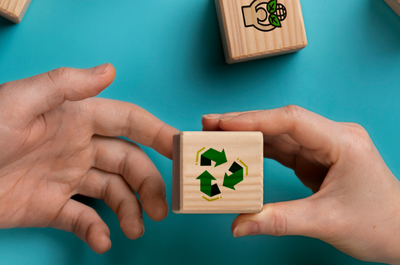Dr. René Van Berkel, senior expert for European Union SWITCH Asia Policy Support Component, said a circular economy offers cost savings from minimizing energy and material expenditures, while businesses can find new circular products and services.
“And I also think that some companies have started to realize that change is unavoidable so the world is moving to a circular economy and they need to get on the bandwagon,” Van Berkel, also co-convenor for the ASEAN (Association of Southeast Asian Nations) Circular Economy Business Alliance (ACEBA), said during an ACEBA webinar.
Van Berkel highlighted circular economy initiatives of some ASEAN MSME entrepreneurs in the agri-food, manufacturing, textile and apparel, plastics waste management, hospitality and energy sectors, as well as start-ups.
He cited Philux Inc., a Filipino furniture manufacturer and retailer known for its luxury design, noting its mindful design for longevity of use, combined with lifetime refurbishment services.
He added Philux uses Forest Stewardship Council (FSC)-certified wood and incorporates rattan in some of their furniture designs, repurposes wood and fabric cut-offs in the production of small decorative items, and minimizes single-use packaging for their products.
In the textile and apparel sector, Van Berkel said Bayo Manila Inc. is incorporating more sustainable materials like Philippine cotton and silk and weaving in fabric scraps, recycled polyethylene terephthalate (r-PET), and non-textile materials like bakong.
“They have known fabric waste minimization through improved garment design, production planning and cutting room operations; (and) recovery and upcycling of fabric scraps. They have known energy and water efficient equipment in production, and also rooftop solar plant,” he added.
In plastics waste management, Van Berkel cited as an example Precious Plastic Philippines which designs and manufactures machinery for small scale plastics recycling.
“Recycling facilities focus on mixed plastic wastes and they design and produce recycled plastic board-based products like accessories and furniture. And they are setting up a network of community-based recycling initiatives across the Philippines,” he said.
In the hospitality sector, Van Berkel said Pizza 4P’s in Cambodia is working to become a zero-waste restaurant and has already achieved 96 percent waste diversion across food waste and plastics.
ACEBA is an ASEAN-centric initiative designed to catalyze leadership and action for the regional circular economy transition in Southeast Asia.
July 07, 2025













